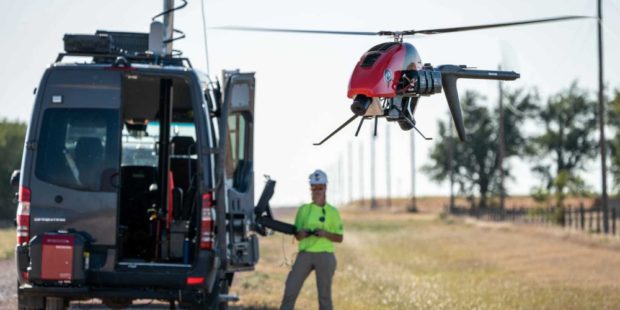Celebrating the 20th anniversary of its International Standard for Business Aircraft Operations (IS-BAO), the International Business Aviation Council (IBAC) has released its first update to the standard in four years, including changes that better adapt to certain practices for helicopter operations. In addition, IBAC is expanding its IS-BAO portfolio to now include remotely piloted aircraft systems (RPAS).
IS-BAO program director Andrew Karas said the most recent update was designed to “lean out” some of the content and provide clarity as the industry has evolved, including additional information on night vision goggle operations, as well as stabilized approaches for rotary-wing aircraft.
He added that the changes involving the helicopter operations were among the more significant in the update. “We’ve started incorporating a more focused standard to specific rotary-wing operations,” he said.
IBAC director-general Kurt Edwards noted that
“the helicopter community is something we’ve been trying to emphasize much more recently.” While working with organizations such as HAI has helped the organization expand its outreach, “relative to fixed-wing operators, I think we have a lot of progress to make and it’s something we are certainly working on.”
Part of that outreach was bringing on board IBAC operations manager Katherine Hilst, who has been deeply steeped in the rotorcraft industry. Her helicopter operations background includes working as a pilot in Los Angeles, a safety manager in Alaska, and owner of her own helicopter company that “made me very aware of safety and proactive initiatives to maximize your safety margins.” Later becoming an attorney and getting into crash litigation, it hit home “what happens when it goes wrong.” She then became an aviation safety auditor and worked at the FAA before ultimately stepping into her current IBAC role three years ago.
During that time, IBAC has been collaborating with HAI on how the two organizations can work more closely together, Hilst said, pointing out that HAI president and CEO James Viola has been on the IS-BAO board.
This led to further discussions about the standard itself.
“Our goal was really some clarification on rotor operations and to provide a little more guidance with operational assistance,” she said. “And I think one of the big ones was stabilized approaches.”
Hilst explained that stabilized approaches are more often looked at for fixed-wing operations, so the standards board wanted to highlight it specifically for rotorcraft operators. “This is really to make sure an aircraft is always in a stabilized area to make a landing,” she said, noting the update discusses why a helicopter operator may want to go around.
Meanwhile, the standards board included a new section that delves into support for decision-making on landing when the continued safety of the flight is ever in question, she said. This follows the theme of HAI’s Land and Live initiative.
Overall, she said the standard has become a “massive improvement” since it first applied to helicopters a decade ago, becoming clearer and more relevant. “It’s a great thing to see because the standard can apply to a range of operations,” Hilst said. This includes in size and mission, she said, estimating that about 15 percent of IS-BAO operators are rotorcraft operators globally.
On the move into remote-pilot operations, Karas noted that some of its participating operators, as well as its auditors, have begun operating RPAS. In addition, standalone RPAS operators have sought out best practices and safety management systems.
“Our focus is to evolve with the industry and to move forward with it as this technology starts to develop and expand around the world. We’re adopting that with this sector,” he added.
IBAC’s RPAS standards were developed through an advisory board that represents a range of industry professionals—Joby Aviation among them—as well as auditors. The working group looked at the traditional IS-BAO standard to see how it could be adapted and further addressed the concept with the International Civil Aviation Organization.
In January, Cartersville, Georgia-based Phoenix Air Unmanned became the first to receive RPAS IS-BAO registration, having worked with IBAC on a pilot program. Phoenix Air Unmanned is a sister company to Phoenix Air Group, an IS-BAO-registered charter aircraft operator with a fleet of 49 Gulfstream, Learjet, and Embraer business jets.
William Lovett, the managing director at Phoenix Air Unmanned, said the company is
“committed to implementing best practices in unmanned flight.”
Photo: Phoenix Air Unmanned is the first remotely piloted aircraft systems operator to meet IBAC’s new RPAS standards and earn IS-BAO RPAS registration.
Source: AIN

